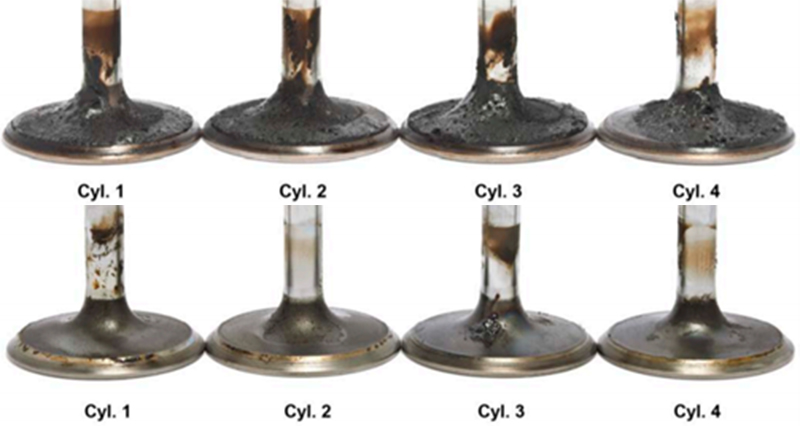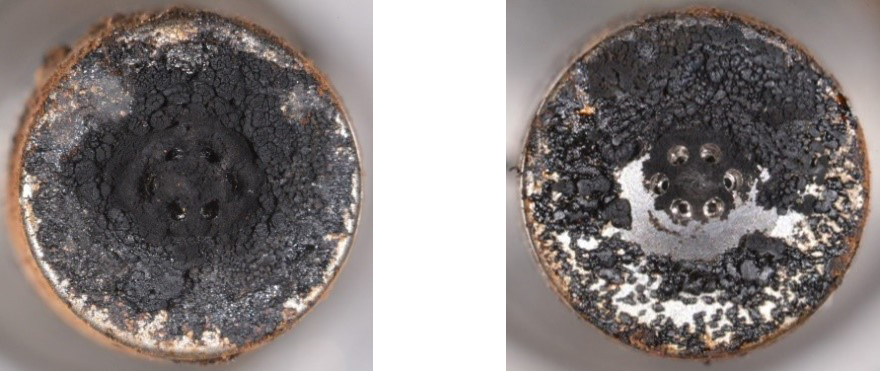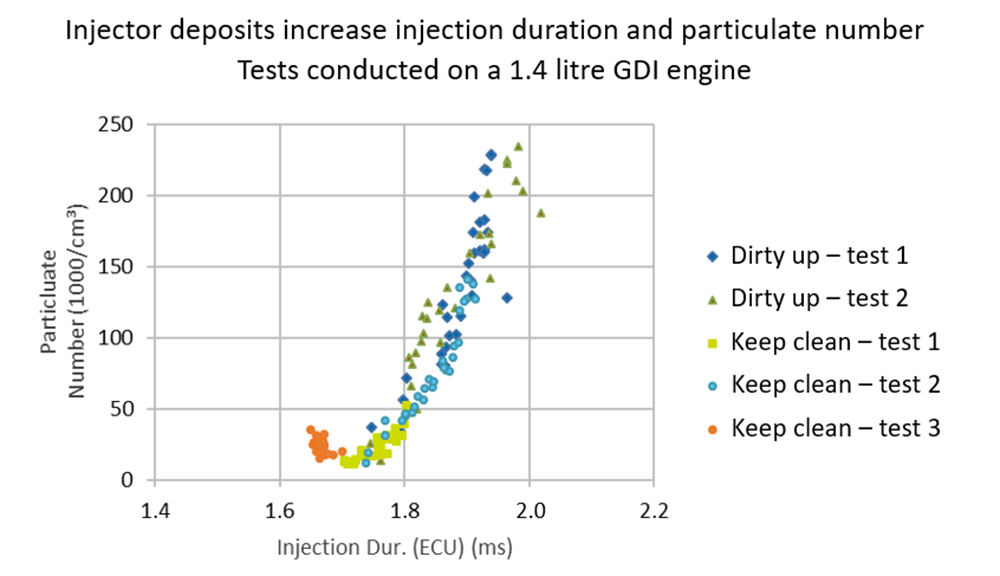Euro 7 Impact on Fuel Technology
The impact of Euro 7 on engines and aftertreatment will be very significant. For vehicles to operate efficiently with ultra-low emissions levels for their full useful lives, the latest technology will be required. In turn this creates a huge challenge for the fuels and lubricants used. Enhanced fuel economy will be required without any compromise of the protection of complex engines and aftertreatment, and this will require higher performance fuel and lubricant technology than ever before.
Emissions Related Issues for Fuels and The Fuel System
Deposits and wear within the fuel system can lead to a significant deterioration of emissions and efficiency. Key issues include:
- Intake valve deposits
- External injector tip deposits
- Internal injector deposits
- Fuel injection system wear
Intake valve deposits in gasoline engines have been recognized as an issue for several decades. The build up of deposits on intake valves affects the air flow into cylinders, degrading performance, efficiency and emissions. In port fuel injected engines (where the fuel is injected ahead of the intake valves) these deposits can be greatly reduced if the fuel contains high quality additives. In direct injection engines, where fuel is injected into the cylinder, intake valve deposits may be removed using a concentrated clean-up additive when the vehicle is serviced.

Injector deposits are an issue for both diesel and gasoline engines. Modern engines operate at much higher injection pressures and injectors have much smaller holes. They may have several injections in a single piston stroke. Extremely small amounts of deposits on the tip of the injector can dramatically affect emissions, especially in direct injection engines where the injector tip is subjected to combustion related soot combined with high in-cylinder temperatures and pressures. Internal deposits can affect the response of the injector needle, also leading to higher emissions (internal deposits are more of an issue in diesel engines).

The chart below shows how fuel additives keep the injectors clean, which in turn reduces injection duration and particulate emissions. If the vehicle is not fitted with a particulate filter this will have a direct effect on tailpipe emissions. If a particulate filter is used, soot related blocking will be greatly reduced and regeneration occurrences (where the collected soot needs to be burned off) will be reduced.

The latest fuel injection systems are manufactured to extremely fine tolerances. Keeping these systems as free from wear as possible is essential to meeting the requirements of Euro 7. This is especially relevant for diesel engines operating at very high injection pressures. With significant increases to in-use compliance periods long-term wear protection becomes more important.
Fuel Additive Solutions and Delivery
Euro 7 compliance will drive the need for high quality fuel additives. These will provide detergency to ensure deposits do not cause emissions deterioration, together with lubricity improvers to prevent wear and keep emission low for long-term compliance. They will also deliver a range of other performance and reliability benefits.
There are several ways in which the additives can be delivered:
- At low concentrations in bulk fuel (a “keep clean” approach).
- At higher concentrations (a “clean up” approach) when the vehicle is serviced. The vehicle owner may also do this using a concentrated aftermarket additive.
- Onboard dosing systems may be used to automatically deliver an appropriate amount of additive into the tank when the vehicle is refuelled.
Whatever method of additive delivery is used, they will play an important role in reducing and/or maintaining proper emissions.
Summary
Euro 7 imposes a chain of challenges. Key pollutants will have tighter limits across a wider range of test conditions. In turn new, complex hardware solutions are needed to comply with the regulations and these rely on fuel and lubricant solutions for compliance to be maintained through the life of the vehicle. High performance fuel additive technologies are essential for compliance with Euro 7 and other emissions regulations. They will help to maintain clean and efficient engine operation for the full useful life of the vehicle, which will enable the much longer in-service compliance periods demanded in the regulations. In turn this support the improvement of air quality in Europe and across the globe.
.jpg?h=658&w=1170&la=en&hash=2ABC1BD34C86459161E1A5564A6B790A)
Controlling Nanoparticle Emissions
May 16, 2023
For many years, the health impacts of particulate matter have been known. Tighter particulate number limits included in Euro 7 will be one of the most significant changes in terms of the impact on hardware, fuels and lubricants.

The Importance of Controlling Low-Temperature NOx
April 10, 2023
Significant reductions in the levels of nitrogen oxides (NOx) are a key part of the upcoming Euro 7 vehicle emissions regulations.

How Euro 7 Will Impact Fuels and Lubricants
March 24, 2023
The Euro 7 vehicle emissions regulations will impact several areas of new vehicle design. The initiative will enact stricter standards for all gasoline and diesel vehicles across the light- and heavy-duty spectrum.